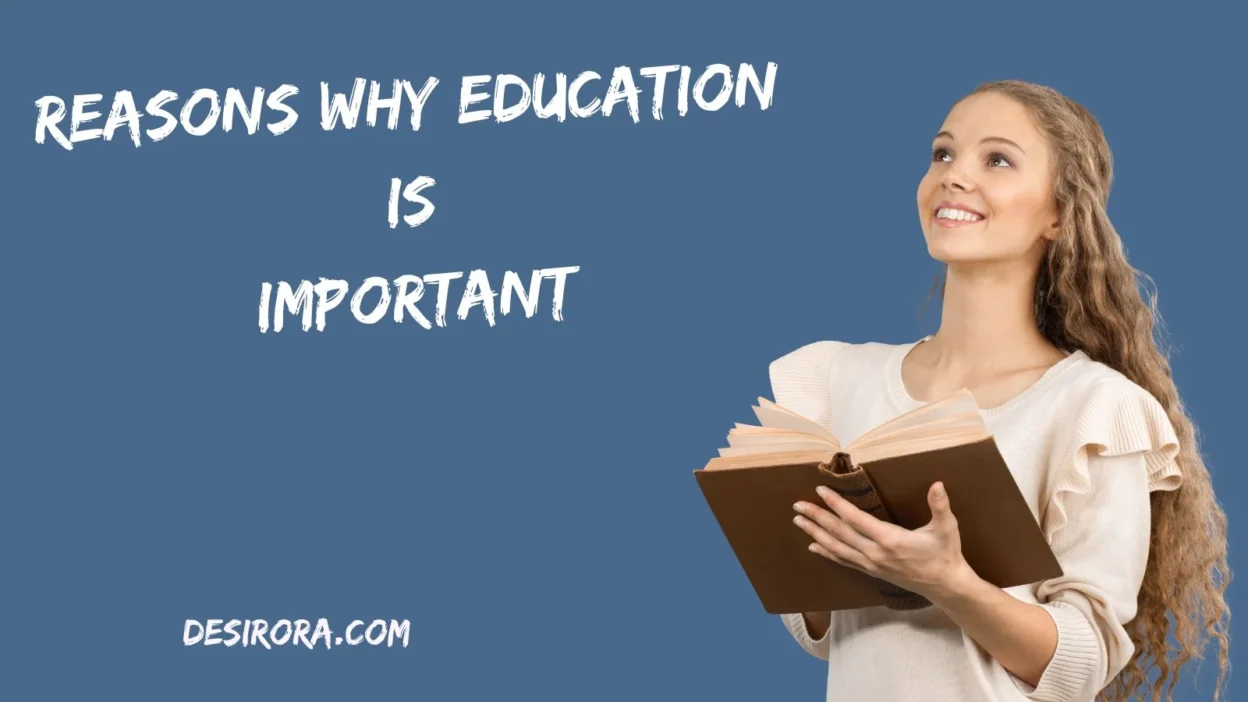Education isn’t just about textbooks, classrooms, or exams—it’s the heartbeat of progress. It shapes who we are, how we think, and what we can become. From building character and confidence to opening doors for better opportunities, education empowers us to live with purpose and make informed decisions.
It’s the tool that transforms curiosity into knowledge, and knowledge into action. In a world that’s constantly evolving, education isn’t a luxury—it’s a necessity that fuels personal growth, social development, and the future of our communities.
Unlocking Personal Growth
Education is much more than memorizing facts or passing exams. It’s about growing as a person, discovering what you’re capable of, and turning potential into reality.
Why it matters
- Self-discovery: When you learn new subjects—say, history, biology or coding—you also uncover hidden interests and talents. I once took a beginner’s art class simply for fun and found I had a passion for painting.
- Confidence boost: Mastering a new skill, such as public speaking or a foreign language, gives you the self-assurance to tackle bigger challenges.
- Lifelong learning mindset: Education teaches you how to learn—how to ask the right questions, how to explore. That’s a skill you carry into all areas of life.
“Education is not the filling of a pail, but the lighting of a fire.” — William Butler Yeats
Real-life usage
Imagine you’re attending a community workshop on digital photography. At first it’s awkward—camera settings, lighting, composition. But by week three, you’re composing shots, understanding light, even helping others. That progression: it’s growth. That’s the effect education can have.
Synonym table
| Word | Synonyms | Notes |
| Education | instruction, schooling, training | “Training” often implies hands-on learning |
| Important | vital, crucial, essential, imperative | Use variety to avoid repetition |
Grammar explanation: “Education is important” vs. “Education is important for…”
- “Education is important.” – a general statement.
- “Education is important for personal growth.” – specifies its purpose or benefit.
Use the second structure when you want to underline why it is important.
Empowering Career Opportunities
When we talk about the value of education, one of the first things that comes to mind is how it opens doors in the job market.
The link between education and jobs
- In many fields, a minimum qualification is required—whether it’s a high school diploma, vocational certificate or university degree.
- Higher credentials often lead to higher wages. Studies repeatedly show that individuals with more education earn more over a lifetime.
- But it’s not just about credentials; education teaches you applied skills like communication, teamwork and adaptability—qualities employers value.
Types of career paths
| Level of Education | Example Careers | Notes |
| High school / secondary school | Administrative assistant, retail supervisor | Entry-level jobs; further training increases options |
| Vocational / trade training | Electrician, plumber, graphic designer | Practical, skill-based work |
| Undergraduate degree | Engineer, teacher, marketing specialist | Opens up mid-sized and management roles |
| Postgraduate or professional | Doctor, lawyer, researcher, executive | Specialized roles; strong competition |
Real-life scenario
Let’s take an example: A friend of mine, Sara, lived in Lahore and took a diploma in web development after high school. Within six months she secured a job as a junior developer. Two years later, after further certification, she became a team leader. Without that initial education step, she says she would still be stuck in a job with limited growth. Education acted as her springboard.
Idioms in this context
- “Open doors”: Education opens doors to new opportunities.
- “Take the plunge”: Deciding to enroll in a course takes courage, but it’s worth it.
- “Learning curve”: Early on in a job, the learning curve is steep—education helps you climb faster.
Building Social Skills and Connections
Beyond books and classrooms, education also plays a big role in developing your social self.
Why social skills matter
- You learn to listen, to present, to collaborate—these are fundamental in both work and life.
- In a classroom, you might work on a team project, talk with your peers and experience the give-and-take of ideas.
Connections and networking
Meeting people from different backgrounds and cultures enriches your life. When you study, you often:
- Form friendships and support networks.
- Connect with mentors and teachers who guide you.
- Join societies or clubs that widen your horizons.
Example
In university, I joined the debate club. I met students from six different countries. During a global issues seminar, we discussed climate change, trade and culture. I learned more than just content—I learned perspective. That experience stuck with me.
Fostering Critical Thinking and Problem Solving
One of the strongest reasons why education is important is that it teaches you how to think, not just what to think.
The mindset of “thinking for yourself”
Education encourages you to:
- Ask questions: Why is this so? What if things were different?
- Evaluate evidence: Is that statistic valid? What’s the source?
- Solve problems: Given a challenge, how do I approach it?
Real-life use case
Picture this: You’re reading a news article about a health alert. Thanks to your education, you don’t just accept everything— you check the source, evaluate credibility, compare viewpoints. That kind of awareness stems from what you learn in school or university.
Types of thinking skills
- Analytical thinking: Breaking down complex information into smaller parts.
- Creative thinking: Coming up with new ideas or approaches.
- Logical reasoning: Working out cause and effect, spotting fallacies.
- Reflective thinking: Looking back on your choices, understanding mistakes.
Example of a problem-solving scenario
Imagine design students tasked to come up with a solution for local traffic congestion. They:
- Gather data: city layout, vehicle types, pedestrian flows.
- Brainstorm alternate routes or transport options.
- Prototype ideas: maybe a bike sharing scheme.
- Test and evaluate: Is it viable? Does it serve users?
That is education in action—skills transferring to real life.
Promoting Civic Engagement and Global Awareness
Education doesn’t just shape you—it connects you to the world. It’s about being aware, responsible, and empowered.
Why it matters
- Informed citizens participate in democracy, community, and public life.
- Education helps you understand social issues, cultural differences and global challenges.
- It encourages empathy, so you understand why others do what they do.
Example
In a global studies course, students from Pakistan, India and Bangladesh worked on a project about water sharing. They discussed political, environmental and social dimensions. By the end, each student had a deeper understanding of complex regional issues.
Real-life effect
Consider a voter in a local election. With a foundation in education, they can evaluate candidates, understand policy impacts, ask “What’s the source of this promise?”, and make a better decision. That’s beneficial for society at large.
Boosting Health and Well-being
You may not immediately link “education” and “health”, but they’re closely connected.
How education impacts health
- Better educated individuals often make healthier choices. They understand nutrition, exercise, mental health.
- Education reduces risk-behaviours—less smoking, fewer accidents, more preventive care.
- Knowledge empowers you: “Why should I get vaccinated?”, “What dietary choices matter?”, “How do I handle stress?”
Case study
In many countries, education campaigns about sanitation and hygiene drastically reduced disease rates. When people understood why clean water mattered, they modified behaviour. Education served as a vehicle for health.
List: Benefits of health-aware education
- Lower mortality and morbidity rates
- Enhanced mental well-being
- Reduced healthcare costs
- Longer, more productive lives
Supporting Economic Prosperity
On both personal and national levels, education is one of the most powerful levers for economic growth.
How education fuels the economy
- Skilled workers boost productivity—businesses operate more efficiently.
- Education fosters innovation—entrepreneurs start new ventures, creating jobs.
- Countries with higher education levels often enjoy higher GDP and improved living standards.
Real-life example
In South Korea, massive investment in education post-1960s helped transform the country into a technological powerhouse. The workforce’s skills and knowledge played a huge role. When education policy aligned with economic goals, the payoff was big.
Synonym table (economy-related)
| Word | Synonyms |
| Economy | economic system, financial system |
| Prosperity | affluence, success, thriving |
| Productivity | efficiency, output rate |
Preparing for an Uncertain Future
We live in a time of rapid change—technology, climate, jobs—all shifting. That’s why education is more important than ever before.
Why preparation matters
- Automation and AI are transforming industries. Education helps you stay relevant.
- Global crises, pandemics, environmental changes force agility—education gives you tools.
- You may change careers multiple times; with a solid educational foundation, the transition becomes smoother.
Example
A friend working in manufacturing sensed disruption. She enrolled in online courses about digital manufacturing and robotics. She shifted to a role in “smart factories”. Without continuous learning, she’d have been left behind.
List: Features of future-proof education
- Flexibility – ability to adapt to new fields
- Lifelong learning – regular skill updates
- Cross-disciplinary knowledge – blending tech, design, humanity
- Critical thinking – able to judge new situations and take initiative
How to Make the Most of Your Education
It’s clear why education is important. But how do you use it to get the most benefit? Here are practical steps.
Strategies for learners
- Set clear goals: Why are you learning? To land a job? To develop a hobby? Knowing the purpose keeps you motivated.
- Active participation: Ask questions in class. Engage in discussions. Apply knowledge in real-life projects.
- Seek feedback: A teacher, mentor or peer can help you identify blind spots.
- Apply what you learn: If you learn marketing, try a personal blog. If you learn coding, build a small app. Learning turns into doing.
- Stay curious: The best learners read beyond the required text, explore adjacent topics, look for connections.
- Balance theory with practice: Doesn’t matter how many books you read—if you never apply knowledge, it remains inert.
- Reflect on your learning: What worked? What didn’t? Adjust.
Idioms and common phrases to motivate
- “Hit the ground running”: When you start applying education immediately.
- “Put your money where your mouth is”: If you say you want to learn, invest time, resources.
- “Bite the bullet”: Sometimes it’s tough, but you push through challenging modules.
Closing Thoughts
Education opens doors—sometimes we don’t even realize how many doors until they’re ajar. It builds foundations, nurtures growth, and empowers us to face life with strength and clarity. Whether you’re just beginning your educational path or returning to learn something new, remember: every lesson, every discussion, every assignment adds up. That’s why education is important.
Frequently Asked Questions
Q1: Is formal education the only way to gain the benefits of education?
A: Not at all. Formal education (schools, universities) plays a big role, but informal learning—online courses, workshops, self-study—also delivers major benefits. What matters is consistent learning and application, not just credentials.
Q2: How does education help with mental health?
A: Education equips you with knowledge about mental health, coping strategies and resources. It also fosters social interaction, purpose and structure—all of which support emotional well-being.
Q3: Can education reduce inequality?
A: Yes, access to quality education levels the playing field. When people from diverse backgrounds receive good education, opportunities spread more evenly across society.
Q4: What can I do if I feel my education isn’t relevant?
A: Re‐assess your goals. Choose courses or programs aligned with your interests. Seek bridge skills (like digital literacy) that apply across fields. Engage in practical projects that link what you learn to real world.
Q5: Does education guarantee success?
A: It doesn’t guarantee success, but it greatly improves your odds. Success also depends on hard work, persistence, networking and sometimes luck. Think of education as your toolkit—it’s up to you to use it.
Conclusion
In short: education matters because it transforms individuals, societies and economies. From personal growth to career development, from social skills to global awareness, the reasons why education is important are many and intertwined. When you choose to learn—whether formally or informally—you’re investing in your future, your community, your world. Keep learning, stay curious, and let education be the compass that guides you forward.

Thomas Hardy is a passionate innovator and thoughtful leader, dedicated to transforming ideas into lasting success. With creativity and purpose, he brings vision and authenticity to everything he does.



